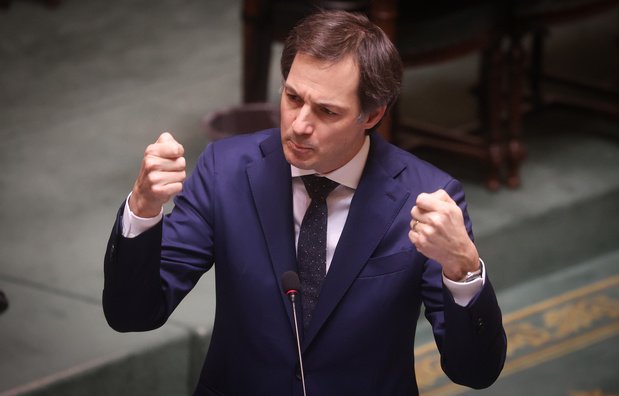The government is to bring its planned pandemic law before parliament sooner than was originally planned, prime minister Alexander De Croo announced.
The government is reacting to ongoing criticism of the method it has chosen to legislate the regulations it introduces to help prevent the spread of Covid-19 in the country.
Essentially, the rules are based on a civil protection law from 2007 which states simply that the King through the government will take all measures considered necessary to deal with the situation.
The fine detail of the rules – how long the curfew will last, which businesses may open and which remain closed, whether men’s hairdressers may shave beards as well as cut hair (they may not) – are contained in ministerial briefs, which only have to be published in the official gazette to become law.
At no point do the rules have to come before parliament, and that has caused concern among legal experts worried at the democratic consequences of taking the power to scrutinise government legislation away from the only elected body in the process. The 2007 law was intended to allow emergency measures to be taken in cases such as flooding, not for a long-lasting pandemic, critics say.
But the Council of State has disagreed on more than one occasion, declaring the method constitutional.
Yesterday, three heads of the country’s bar associations published an open letter making just that point, referring to the move as an ‘erosion of the rule of law’.
The government has now responded with a promise to bring its long-awaited pandemic law – currently being prepared by federal home affairs minister Annelies Verlinden (CD&V) with the help of health minister Frank Vandenbroucke (sp.a) – before parliament at an early date.
According to a letter written by De Croo to the parliament’s chair (or speaker) Eliane Tillieux (PS), the pandemic law will be presented as a bill to the relevant parliamentary committee (or committees) for their remarks. That consultation would take place before the legislation is sent to the Council of State or any other advisory organ.
“That should make it possible to take note of the sensitivities and suggestions made by the House as early as the preliminary design phase.”
Whether that ‘possibility’ is likely to appease critics of the current method is uncertain. The promise appears to reduce the role of parliament to an advisory body rather than a fully-fledged legislative one.
In his public statements, De Croo has stressed the desire for parliament to be ‘involved’ as well as to ‘provide its expertise’. But those terms fall short of allowing parliament its constitutional role in determining whether a bill will be approved or not, and in what form.
Pieter De Roover, fraction leader for N-VA and a critic of the government’s approach until now, welcomed the government’s move.
“They are apparently aware of the social and political pressures over this issue,” he said. “But at the same time, the letter seems more spectacular than it is. They are hanging a carrot before our noses, but we are sitting on the donkey.”
De Croo now hopes to being the bill before the parliament by the end of the month, he told the VRT.
Alan Hope
The Brussels Times

